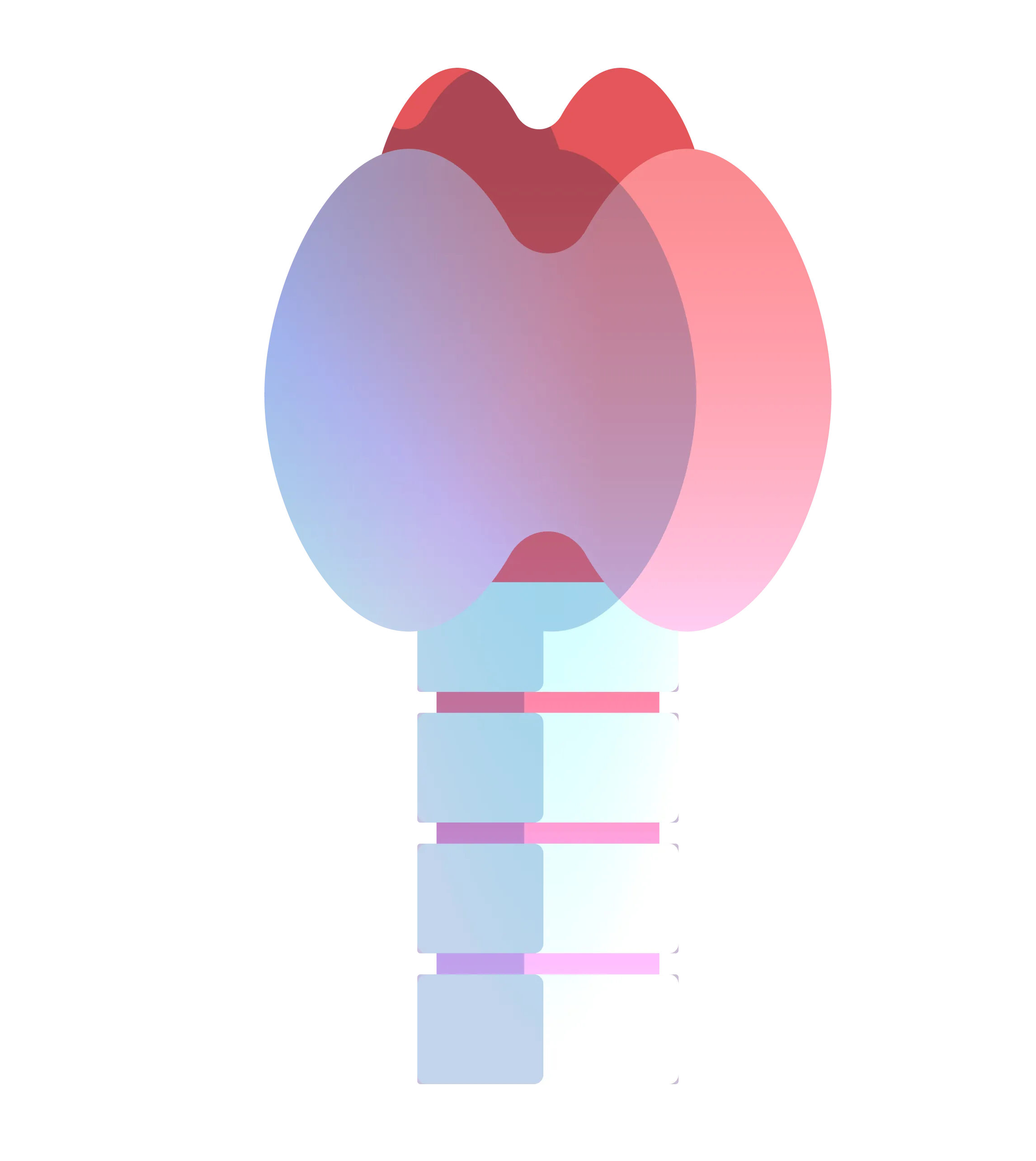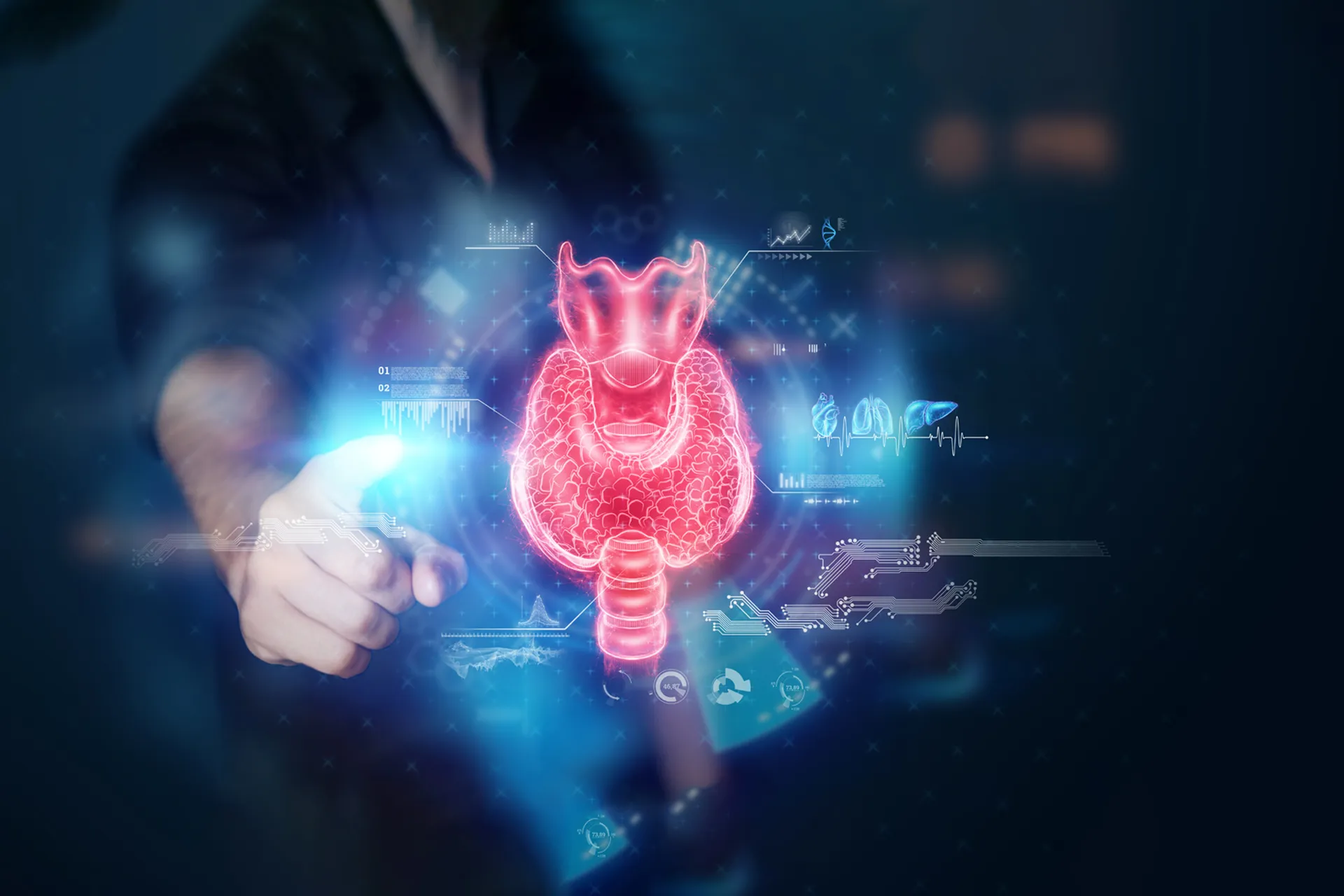Thyroid | 4 min read
Thyroid Antibodies: What are the Symptoms and How to Lower TPO Antibodies?
Medically reviewed by
Table of Content
Key Takeaways
- 1 in 10 people in India have hypothyroidism due to iodine deficiency
- Fatigue, depression, and memory lapses are symptoms of hypothyroidism
- Quit smoking, lose weight, and improve gut health to lower TPO antibodies
Thyroid antibodies develop when your thyroid gland or thyroid proteins are mistakenly damaged by the immune system [1]. The condition is known as Hashimoto thyroiditis, an autoimmune disease in which thyroid cells are destroyed. Hashimoto disease is the common cause of hypothyroidism in developed countries [2]. In India, this is a large problem as 1 in 10 people suffer from hypothyroidism, mainly due to iodine deficiency [3].
Thyroid antibodies are of different types. Thyroid antibody tests are done to determine the same. The presence of thyroid peroxidase antibodies (TPO) could be a sign of Hashimoto disease [4]. Read on to find out more about low thyroid symptoms that cause high thyroid antibodies and how you can lower TPO antibodies.
Additional Read: Signs of Hyperthyroidism and Hypothyroidism: A Guide to the Two Thyroid ConditionsSymptoms of High Thyroid Antibodies
In the beginning, you may not observe any thyroid antibodies symptoms or may notice swelling at the throat. The antibodies slowly progress over the years and lead to high TPO levels. Listed below are some common symptoms of hypothyroidism.
- Fatigue
- Weak nails
- Loss of hair
- Depression
- Tenderness
- Swollen face
- Constipation
- Memory lapses
- Dry or pale skin
- Stiffness and joint pain
- Unexplained Weight gain
- Enlargement of the tongue
- Increased sensitivity to cold
- Inactivity and lack of energy
- Muscle aches and weakness
- Prolonged menstrual bleeding
- Decreased movements or activity

How to Lower Your Tpo Antibodies Naturally
Below are some measures you can take to lower TPO antibodies.
Quit Smoking
Smoking contains toxins that are definitely not good for your overall health. Some of these toxins may disrupt your thyroid. Thiocyanate especially disturbs your iodine intake and can contribute to Hashimoto antibodies. So, you need to stop smoking tobacco cigarettes.
Improve Gut Health
Gut health and thyroid health are linked to each other. Certain gut infections lead to hypothyroidism. For instance, Blastocystis hominis, small intestine bacterial overgrowth, and H. Pylori lead to high thyroid antibodies. So, curing gut infection will help your overall health. You can also consume an anti-inflammatory and gluten-free diet to help your thyroid work better. A bad diet may damage your thyroid and immune function by causing inflammation.
Supplements
There are many supplements to help reduce thyroid antibodies and benefit thyroid health, which include:
- Magnesium citrate
- Zinc
- Vitamin D
- B complex vitamins
Magnesium is a preferred choice and is believed to lower TPO antibodies. Supplements such as selenium, inositol, and nigella are also considered safe and are cost-effective. Researchers are of the view that deficiency in vitamin D leads to an increase in thyroid antibodies. Studies indicate that taking selenium every day may reduce TPO antibodies and help those with Hashimoto disease [5].
Therapies
Several therapies are beneficial in reducing thyroid antibodies. For instance, low-level laser therapy is used to lower TPO antibodies. This therapy is also said to reduce levothyroxine medication required by patients even after months of medication and check-ups.

Make Dietary Changes
Avoid gluten, a protein commonly found in wheat, barley, rye, and other grains. Gluten is a common trigger in Hashimoto disease. Avoiding gluten will help reduce inflammation in the body. Since gluten molecule and thyroid tissue looks similar, the immune system attacks both by identifying them as toxins. So, thyroid antibodies will gain control. Thus, people with leaky gut should avoid gluten in food. Incorporate a gluten-free, sugar-free, grain-free and dairy-free, diet for thyroid health.
Additional Read: Thyroid Diet: A comprehensive guide on what you should eat and avoidRegulating Iodine
Iodine is one of the necessary nutrients for the thyroid gland. But it should be consumed moderately. A deficiency in iodine can lead to symptoms of thyroid antibodies. Iodine makes autoantibodies to attack thyroid peroxidase and thyroglobulin. However, reducing iodine may reverse thyroid autoimmunity. Even a change to iodine intake as low as 250 mcg per day can reduce TPO antibodies by over 1000 points.
Weight Loss
It is known that thyroid disease can cause weight gain. However, the opposite is also true. Putting on weight can lead to thyroid disease. The fat cells in your body can be the largest contributor to inflammation in your body. Extra pounds can make your body resistant to thyroid hormones. Losing weight can help with thyroid antibodies. So, you should maintain your weight or reduce it if you are overweight.
As you work towards having low TPO antibodies, make the right lifestyle and dietary changes. In fact, with the right food habits, you can address both iodine and thyroid diseases, since iodine deficiency causes lower production of thyroid hormones. Seeking medical advice at the right time and getting the antibodies test is key to addressing this problem. Now, you can consult with specialists and book tests on Bajaj Finserv Health and get the proper care you require.
References
- https://labtestsonline.org/tests/thyroid-antibodies
- https://www.ncbi.nlm.nih.gov/books/NBK459262/
- https://www.downtoearth.org.in/news/health/1-in-10-indians-have-hypothyroidism-61693
- https://medlineplus.gov/lab-tests/thyroid-antibodies/
- https://pubmed.ncbi.nlm.nih.gov/20883174/
Disclaimer
Please note that this article is solely meant for informational purposes and Bajaj Finserv Health Limited (“BFHL”) does not shoulder any responsibility of the views/advice/information expressed/given by the writer/reviewer/originator. This article should not be considered as a substitute for any medical advice, diagnosis or treatment. Always consult with your trusted physician/qualified healthcare professional to evaluate your medical condition. The above article has been reviewed by a qualified doctor and BFHL is not responsible for any damages for any information or services provided by any third party.





